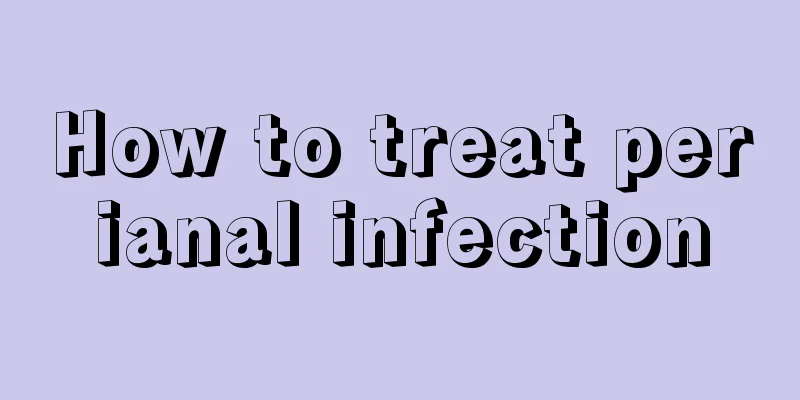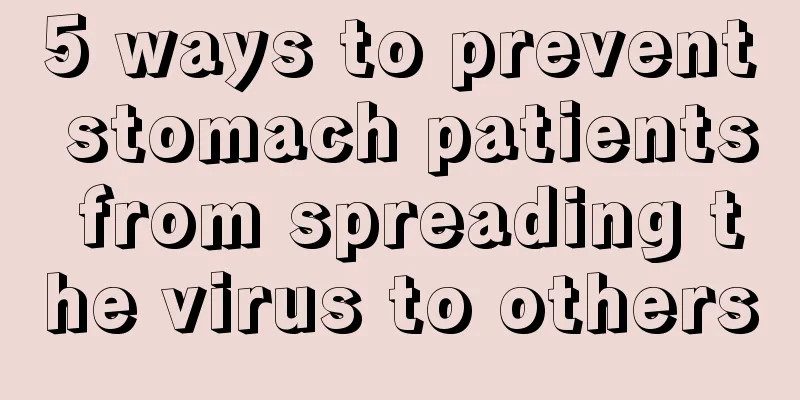How to treat perianal infection

|
Perianal infection is a very common disease. Generally, perianal infection is caused by internal hemorrhoids. If the internal hemorrhoids are not treated properly and rupture, bacteria will easily infect the wound, resulting in perianal infection. You may want to learn more about the ways of perianal infection. 1. Regulate bowel movements: Regardless of whether the bowel movements are constipated or not, frequent diarrhea can lead to anal crypt inflammation and cause anorectal abscesses. When the stool is constipated, the feces stored in the rectum can easily block the anal crypts, causing anal cryptitis and forming anorectal abscesses. At the same time, dry and hard stools that abrade the skin of the anal canal or anal crypts can also cause anorectal abscesses. Prolonged diarrhea can cause loose stools to enter the anal crypts, stimulating inflammation of the anal crypts and inducing infection. 2. Develop good hygiene habits: Develop the habit of washing the area after defecation every day to prevent infection. 3. Reasonable diet: The diet should not be too refined, and do not eat irritating foods. This will facilitate the excretion of stool. 4. Exercise and strengthen your physical fitness: People who sit or stand for long periods of time are prone to local blood circulation disorders in the anus, which reduces local disease resistance and makes them prone to infection. Therefore, people who sit for a long time should actively participate in sports to increase the anus's resistance to disease. 5. Do not sit in wet places for a long time: Sitting on grass or wet soil for a long time will cause the anus to get cold and damp, which will reduce your resistance to disease. Cold and dampness can easily invade the anus and cause infection. 6. Actively treat anal cryptitis and anal papillitis: use sitz baths, rectal suppositories, oral antibiotics or traditional Chinese medicine to prevent and treat inflammation from getting worse, or even festering and forming anal and rectal abscesses. 7. Actively treat systemic diseases: Actively treat systemic diseases such as intestinal tuberculosis, Crohn's disease, and ulcerative colitis. As long as you adhere to the above methods of preventing perianal abscess, it is not impossible to avoid the occurrence of perianal abscess. However, once perianal abscess occurs, you must understand that perianal cysts cannot heal themselves, and patients must undergo surgical treatment to achieve the goal of complete cure. |
<<: Is posterior pituitary hormone effective in treating hemoptysis
>>: How to drink beer without bloating, what are the tips
Recommend
Dietary precautions after ovarian tumor surgery
As we all know, a good diet can help patients rec...
How to prevent ovarian tumors by yourself
To prevent ovarian tumors, we must pay attention ...
Key points of rehabilitation training after laryngeal cancer surgery
Rehabilitation training after laryngeal cancer su...
How to cook red beans and coix seed in a microwave oven
Both red beans and coix seeds have the effects of...
How to exercise in the early stage of nasopharyngeal cancer
Nasopharyngeal cancer is a common disease in our ...
What to do with stage 4 breast cancer
Stage IV breast cancer refers to breast cancer wi...
Pain on the right side of the back
Many people are prone to senile diseases when the...
How to stop bleeding from the tongue, the most important method
The tongue is very important to people, but some ...
People who are suitable for chemotherapy for non-small cell lung cancer
Drug treatments for non-small cell lung cancer ar...
Can breast cancer in the middle and late stages be cured?
Generally speaking, middle and late stage breast ...
There is blood in the secretion
When there are abnormalities in the female body, ...
Analysis of the treatment of lymphoma
The main treatment methods for lymphoma include c...
How to wash a suit
We all know that a clean and tidy suit can well r...
What to do if uremia has high potassium?
If the potassium content in the body of a patient...
What are the items for colorectal cancer screening
Colorectal cancer screening programs include rout...









